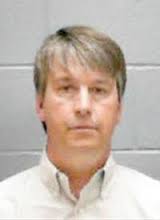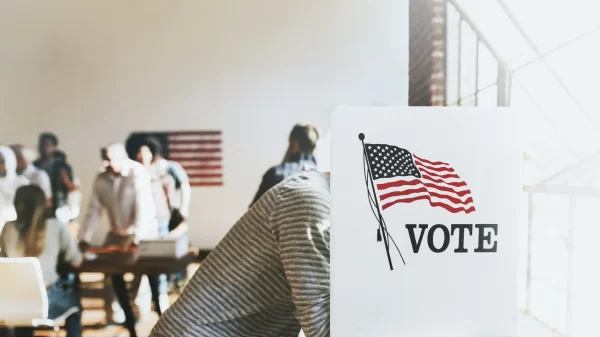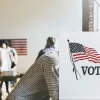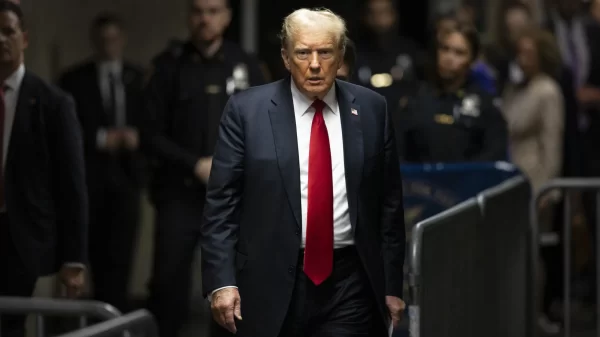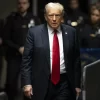By Bill Britt
Alabama Political Reporter
MONTGOMERY—Attorneys for indicted lawmaker, Rep. Barry Moore, R- Enterprise, have recently filed a flurry of motions before the Lee County Circuit Court.
Moore is represented by former Attorney General Bill Baxley, and is charged with four felony counts of making false statements and perjury. If convicted, Moore could face decades behind State prison walls.
Last week, the State responded to the motions filed on Moore’s behalf.
See docs…
State’s Response to Defendant’s Motion for a More Definite Statement
State’s Motion for Pre-Trial Determination of the Admissibility of the Evidence
State’s Response to Defendant’s Motion to Suppress
State’s Response to Defendant’s Motion for Disclosure of Grand Jury Transcript
In the State’s response to defendant’s request for discovery and notice of compliance, Acting Attorney General W. Van Davis, along with Miles “Matt” Hart, Chief, Special Prosecutions Division and Michael B. Duffy, Deputy Attorney General provide Moore’s attorneys with the following:
- A certified copy of the official transcript of Moore’s testimony before the Lee County Special Grand Jury on January 24, 2014
- The substance of oral statements made by Moore to Special Agents with the Alabama Attorney General’s Office
- A CD containing two recorded telephone calls between Moore and Josh Pipkin
- Certified copies of the official transcripts of the two recorded telephone calls between Moore and Josh Pipkin
- A CD containing a recorded telephone call between Moore and Jonathan Tullos
- A certified copy of the official transcript of the recorded telephone call between Moore and Tullos
- Phone records from Josh Pipkin
- Phone records from Jonathan Tullos
- An executed copy of the oath from the court reporter for the Lee County Special Grand Jury
The court documents reveal that the State also has a recording of Moore speaking with Jonathan Tullos, Executive Director at Wiregrass Economic Development Corporation. Tullos has refused to speak with the press, citing instructions from the prosecution.
In a recording made by Josh Pipkin, Moore is heard relaying threats that he says he is communicating on behalf of Speaker of the House Mike Hubbard. It can be surmised that Tullos may have made similar recordings of conversations with Moore. The persecution may be using the Tullos recording to substantiate the validity of the threats made by Moore to Pipkin, on Hubbard’s behalf.
The State also responded to Moore’s motion to suppress the two phone recordings and transcripts between Moore and Pipkin. This is the first time that the public has been made aware of two phone conversation between Moore and Pipkin.
Alabama Political Reporter was the first to report and release a copy of one of Pipkin’s recordings, while it was suspected that other tapes existed this is the first time it has been confirmed.
Moore’s attorneys have argued that the tapes should be suppressed because Moore was in Florida at the time of the phone calls and therefore did not consent under Florida law to Pipkin’s recording of their conversations.
However, the conversations were recorded in Alabama and therefore fall under Alabama law, not Florida’s.
The State also adds, “As an initial matter, the relief Moore seeks is simply not available to him. Courts in Alabama have repeatedly held that recorded conversations are not inadmissible simply because they were illegally recorded.”
The State does not concede that both tapes were recorded while Moore was in Florida, and offers this further response, “In any event, the phone calls between Pipkin and Moore were legally obtained. It is irrelevant under Alabama law where Moore was physically located at the time of the phone calls because Pipkin recorded the conversations in Alabama. Since the law in Alabama is that only one party’s consent is required to record a conversation, then the recordings at issue here were unquestionably legal.”
In an other motion Moore’s attorneys asked to compel the State to review personnel files of testifying agents. Moore has implied that the prosecutors would somehow be witnesses in the case.
However, the State, in its answer, says, “This Court [Lee County Circuit Court] has already held that the prosecutors are not witnesses in this case.”
The prosecution also contends that it, “does not intend to call themselves as witnesses in this case. Nor would it be permissible for the defense to do so solely for purposes of impeachment.”
The prosecution concluded by stating, “Accordingly, since the prosecutors are not witnesses in this case, then Moore’s request is simply inappropriate and devoid of any legal or factual basis.”
Much of Baxley’s legal defense of Moore has been based on challenging the law, not if his client committed a crime.
In a separate response, the State addressed Moore’s motion for a “More Definite Statement.”
In the prosecutions answer, they submit that, “The four-count indictment clearly and succinctly sets forth the charges against Moore and he has failed to show good cause for the requested relief. Accordingly, the Motion is due to be denied.”
The State contends that the perjury case against Moore is straightforward: he “lied about threats to Pipkin and about Hubbard’s threats,” while testifying before the Special Gand Jury in Lee County.
In the motion, Moore asks for “particulars” as to “[w]hat part of the Defendant’s alleged testimony was “a false, fictitious, or fraudulent statement or representation.”
The State answered by saying “The indictment itself does not require to prove falsity of Moore’s testimony. This will be demonstrated at trial by the State’s evidence. A pre-trial indictment is only required to serve notice of the charges against him.”
Despite the clear ruling by the court, “Moore insists that he is entitled to a pre-trial summary of the State’s presentation of the evidentiary facts necessary to convict him at trial.”
According to the prosecution, Moore’s motion essentially seeks a “bill of particulars,” even though according to the State law, Ala. Crim. App. 1976, “An accused is not entitled to a bill of particulars.”
Moore’s attorneys also asked the court to fundamentally, “re-litigate the issue of whether Moore’s false statements were material and further seeks evidentiary facts necessary to obtain a conviction.”
The State responded by saying, “Here, the grand jury’s inquiry into Moore’s knowledge of or role in the Speaker’s possible threats to Pipkin (through Moore) is entirely legitimate and material. At a minimum, Moore’s false testimony on this issue potentially interfered with this line of inquiry.”
Moore’s attorneys have also asked the record for a disclosure of the Grand Jury transcript, to which the State responded by saying the motion was moot, “ because a copy has already been provided in the State’s Response to Defendant’s Request for Discovery and Notice of Compliance with Rul 16.1, ALA. R. Crim. P.”
Moore further asked the court to provide transcripts of all other witnesses who have appeared (or will appear) before the Lee County Special Grand Jury. This is considered a fishing expedition that would benefit, Speaker Hubbard, the State thinks this request would be denied, saying, “ assertion that he is entitled to obtain the grand jury transcripts of the testimony of each and every witness that appeared before the Lee County Special Grand Jury. To be sure, Moore concedes that the State’s production of such material “is not an ordinary procedure.”
The State points to the fact that the United States Supreme Court, “has made it absolutely clear that such procedure is improper: ‘A defendant’s right to discover exculpatory evidence does not include the unsupervised authority to search through the [State]’s files.’”
The prosecution argues that Defense counsel has no constitutional right to conduct his own search of the State’s files to argue relevance.
“The Alabama Grand Jury Secrecy Act would also certainly prohibit such an invasive intrusion upon the secrecy of the Lee County Special Grand Jury’s continuing investigation,” according to the State’s response.
Lastly the State responded to Moore’s motion requiring disclosure of all Brady and/or Giglio Information
Brady disclosure consists of exculpatory or impeaching information and evidence that is material to the guilt or innocence and Giglio Information is sometimes used to refer to any information pertaining to deals that witnesses in a criminal case may have entered into with the government, according to online sources.
The State says that, it has, “no obligation to provide Moore with a copy of its complete file in this case…The United States Supreme Court has further held that the State (not the defense) makes the final determination as to whether certain evidence is exculpatory.”
The State says it has reviewed its file and determined which evidence should be disclosed to the defense. “Accordingly, since the State’s determination on this issue is final, and the defense has not identified any particular exculpatory evidence withheld by the State here.”
The State has filed a motion for pre-trial determination of the admissibility of evidence, asking the court to certified the copy of the official transcript of Moore’s testimony before the Lee County Grand Jury and the recordings of the two telephone conversations between Moore and Pipkin.
The prosecution states that, “Accordingly, the transcript of Moore’s testimony before the Lee County Special Grand Jury is admissible at trial, because his statements are relevant, not hearsay, and the transcript is authentic.” They also argue that, “The Recordings and Transcripts of the Telephone Calls between Moore and Pipkin are also Admissible.
Additionally, the recordings and transcripts of the two phone calls between Moore and Pipkin should be ruled admissible evidence at trial.”
The State in its motion also points to inconsistencies in Baxley’s arguments before the court: “…the defense contends that the recordings are not relevant but in the Defendant’s Motion to Suppress at paragraph 4 the defense states that the recordings ‘will be an integral part of the State’s case.’”
They further note, “…the defense contends that the recordings are not authentic. In the Defense’s Motion to Suppress at paragraph 2, the Defense states that ‘It is believed that the State has recordings of the conversation made between the Defendant and Mr. Pipkin.’” They point to the fact that in Baxley motions that the Defense recognized that there may have been a witness to the recordings that would authenticate them.
“Lastly…in light of the critical importance of Moore’s testimony and the phone calls to the State’s case, a pre-trial ruling on this evidence will greatly expedite the trial in this matter,” according to court filings by the State.
Moore, through his attorneys, continues to argue on points of procedure while never addressing the fact that he has been indicted for perjury and making false statements.







































